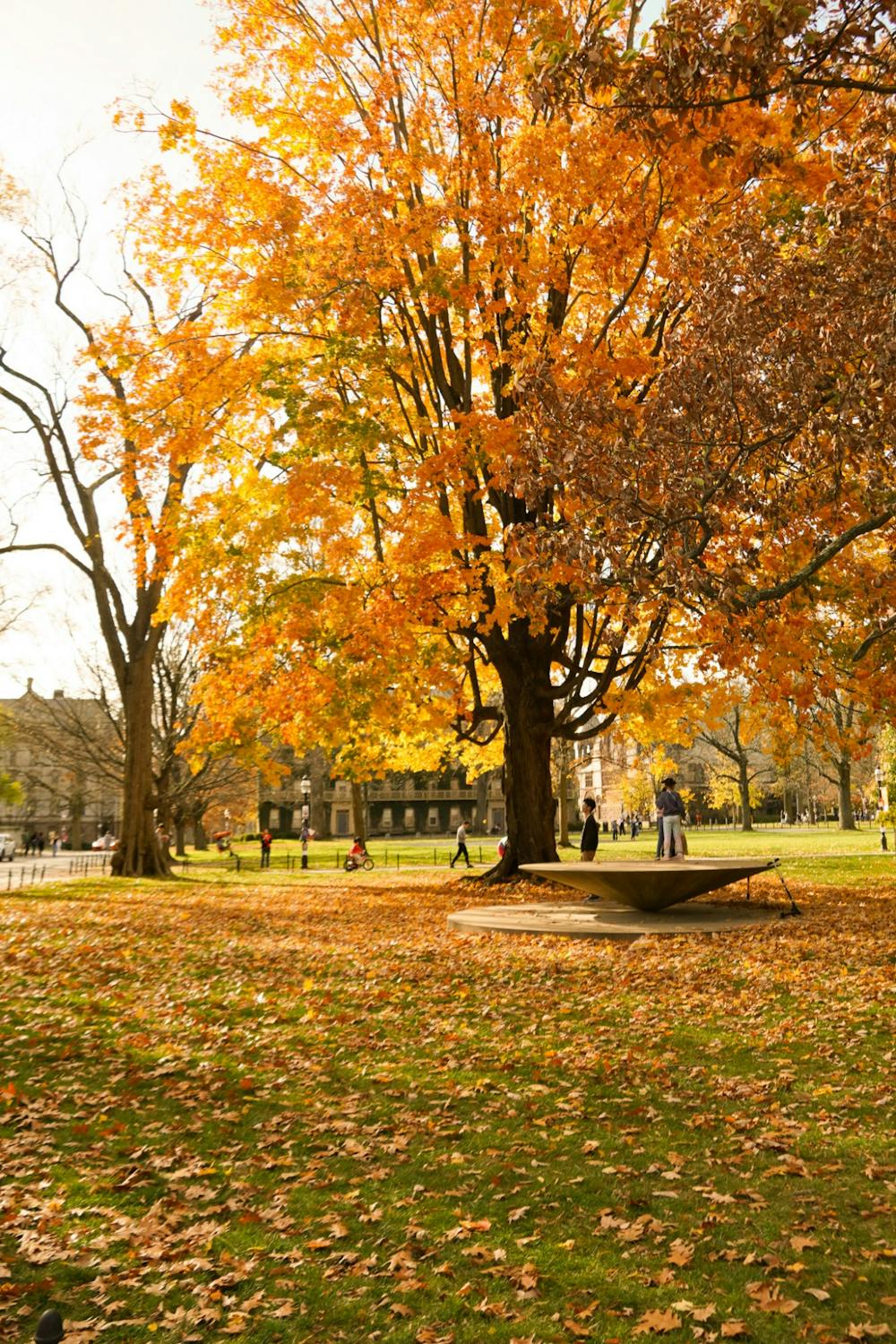It’s safe to say that this year’s presidential election means a lot to Princeton students, regardless of race and ethnicity, immigration status, or political affiliation. My fellow writers Gil Joseph and Preston Ferraiuolo recently wrote about the importance of voting for those who can’t, and the importance of absentee voting in swing states — both pieces argue that every vote can make a difference.
Many students are clearly motivated to vote by their sense of responsibility to their communities, irrespective of how they vote. Through various get-out-to-vote efforts, such as Vote100’s voter registration drive this September, we have shown that we can encourage each other to show up for our communities and express political opinions. This must continue even after the election.
Regardless of the results of the election, we must continue to fight for each other’s rights, to build community in spaces of resistance, and to work towards an equitable world. This starts by honoring the commitment and responsibility that we have to each other by continuing to engage in free advocacy and discourse at Princeton and beyond.
The first way to honor our commitment to our communities is by voting. While some students may feel that they can’t in good conscience cast a vote for either major candidate, casting a third-party vote could have damaging consequences on the election’s outcome. Every vote counts, and Princeton students have a responsibility to each other to vote for a major party in this election.
But, beyond this, we must do more than vote: we must keep fighting for each other regardless of the election result. As a non-citizen on an F-1 visa in the US, I can’t vote in this election. However, like all students must, I will be here after the election to rebuild our community through active dialogue and community engagement, continuing to create space for people of all identities and political opinions.
We also must continue to honor Princeton’s commitment to free speech by supporting students’ right to protest and use our platform at such a powerful institution to make our opinions heard — whatever that may look like.
Using Princeton’s vast resources to protect free advocacy and discourse involves engaging with talks and conferences that will teach us about issues on the ballot. This semester alone, various groups and departments have hosted events about the US’s global relationships, migration to the US from migrants themselves, the importance of low-income voters, and about the significance of freedom of speech. Through the Every Voice conference students were able to learn about queer alumni’s experiences of navigating identity on Princeton’s campus and in their professional lives. By attending these events, students can learn how to better show up for each other, and can become more educated about the issues they are tasked with voting on.
Additionally, we must voice our opinions through meaningful avenues on issues we think are important. This could take the form of writing, whether it be through news organizations like the ‘Prince,’ through independent research, or through involvement with student groups that organize events around identity. The Princeton Latin American Student Association, for example, organizes events related to service and activism, and Princeton’s Pace Center organizes various volunteering opportunities that students can become involved with.

Student-led organizations are also directly engaging in protesting and creating spaces of resistance, including those involved in the larger coalition of the Princeton Progressives. Some groups are also involved in conservative-focused organizing — the Anscombe Society and the Aquinas Institute, which support students pursuing conservative lifestyles related to chastity and Catholicism. In addition, the Tory holds space for those students who choose to write for a newspaper primarily targeting conservative audiences.
Regardless of the election results, there will be students who feel that the new president elect will not reflect their political opinions, and will not enact policies that they desire. This should only encourage us to further build community during acts of resistance and support students who raise a call to action in light of what they perceive as injustice. This could mean supporting students arguing for justice for Palestinians, standing beside those who voice concern for the climate, and building a culture of acceptance and an atmosphere of belonging in spaces of resistance, during and beyond protests. This also means that we must continue to foster a community with freedom of speech on campus, allowing groups to organize events for conservative-minded students, whether or not these are met with backlash.
All protests and organizing should be welcomed, with the expectation that we explicitly demand that the University treats all demonstrations equally, holding all protestors to the same standards and treating all causes with the same protest guidelines.
Although it’s easy to fall into the nihilistic mindset that the things we do as individuals will have little effect on the world, we must remind each other of the ethical responsibility that we have to create a better future for ourselves and for those who come after us. This means that we can’t lose hope. We must lean on each other, now more than ever. We all have the great privilege of attending one of the world’s most prestigious universities, and we must use our education to make a difference, whether through student activism, volunteering, voting, or re-educating our communities and each other. We must continue to honor our moral commitments to each other and the world, and that begins with making a change in our own communities.

Asa Santos is a senior Anthropology major from London and São Paulo, minoring in Gender & Sexuality Studies and Global Health & Health Policy. Santos’ column, “Opening the Gates,” runs every two weeks on Tuesdays. All of their columns can be read here.








